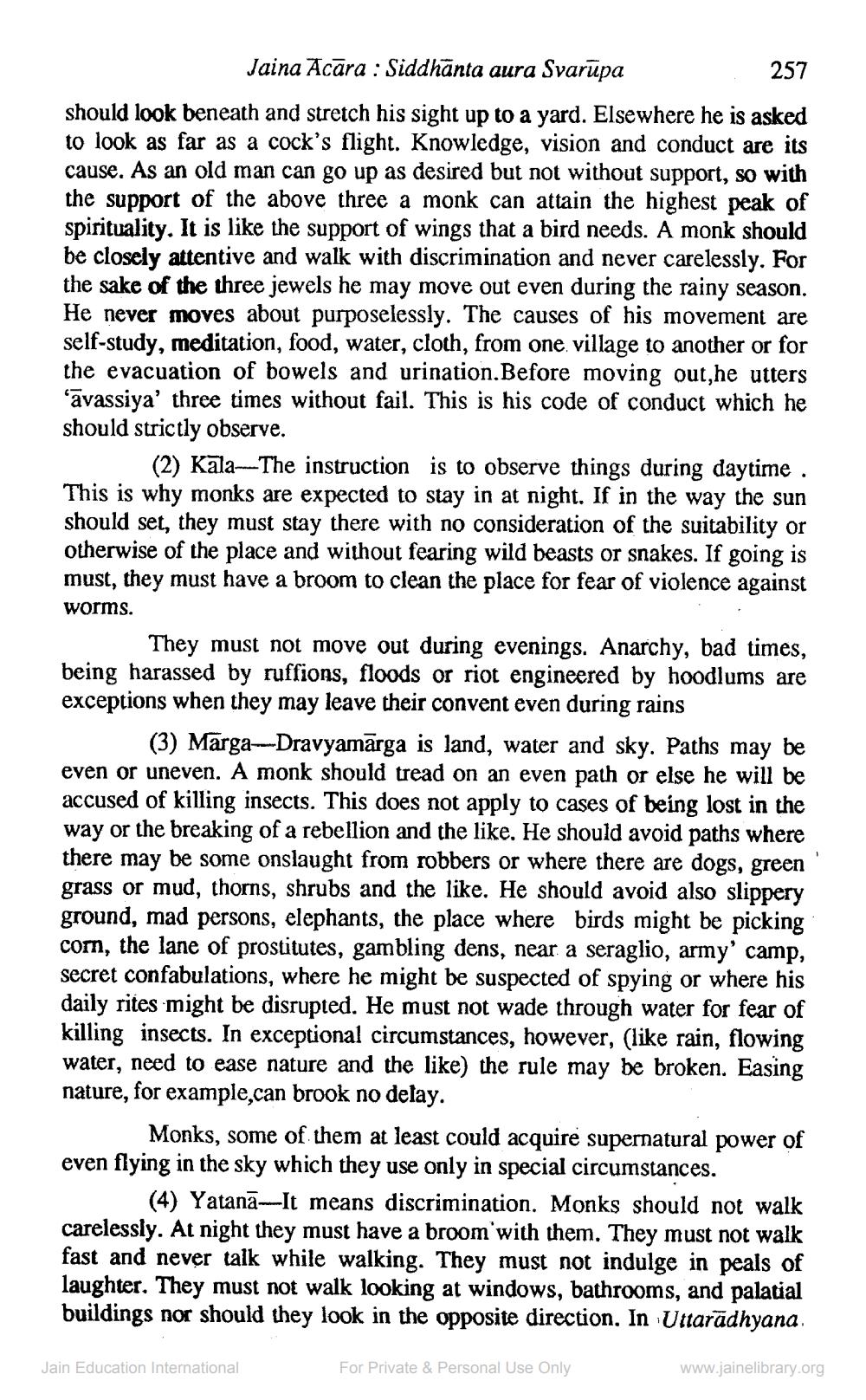________________
Jaina Acara : Siddhanta aura Svarūpa
257 should look beneath and stretch his sight up to a yard. Elsewhere he is asked to look as far as a cock's flight. Knowledge, vision and conduct are its cause. As an old man can go up as desired but not without support, so with the support of the above three a monk can attain the highest peak of spirituality. It is like the support of wings that a bird needs. A monk should be closely attentive and walk with discrimination and never carelessly. For the sake of the three jewels he may move out even during the rainy season. He never moves about purposelessly. The causes of his movement are self-study, meditation, food, water, cloth, from one village to another or for the evacuation of bowels and urination.Before moving out, he utters 'avassiya' three times without fail. This is his code of conduct which he should strictly observe.
(2) Kala--The instruction is to observe things during daytime. This is why monks are expected to stay in at night. If in the way the sun should set, they must stay there with no consideration of the suitability or Otherwise of the place and without fearing wild beasts or snakes. If going is must, they must have a broom to clean the place for fear of violence against worms.
They must not move out during evenings. Anarchy, bad times, being harassed by ruffions, floods or riot engineered by hoodlums are exceptions when they may leave their convent even during rains
(3) Marga-Dravyamārga is land, water and sky. Paths may be even or uneven. A monk should tread on an even path or else he will be accused of killing insects. This does not apply to cases of being lost in the way or the breaking of a rebellion and the like. He should avoid paths where there may be some onslaught from robbers or where there are dogs, green grass or mud, thorns, shrubs and the like. He should avoid also slippery ground, mad persons, elephants, the place where birds might be picking com, the lane of prostitutes, gambling dens, near a seraglio, army' camp, secret confabulations, where he might be suspected of spying or where his daily rites might be disrupted. He must not wade through water for fear of killing insects. In exceptional circumstances, however, (like rain, flowing water, need to ease nature and the like) the rule may be broken. Easing nature, for example,can brook no delay.
Monks, some of them at least could acquire supernatural power of even flying in the sky which they use only in special circumstances.
(4) Yatanā-It means discrimination. Monks should not walk carelessly. At night they must have a broom with them. They must not walk fast and never talk while walking. They must not indulge in peals of laughter. They must not walk looking at windows, bathrooms, and palatial buildings nor should they look in the opposite direction. In Uttarādhyana.
Jain Education International
For Private & Personal Use Only
www.jainelibrary.org




